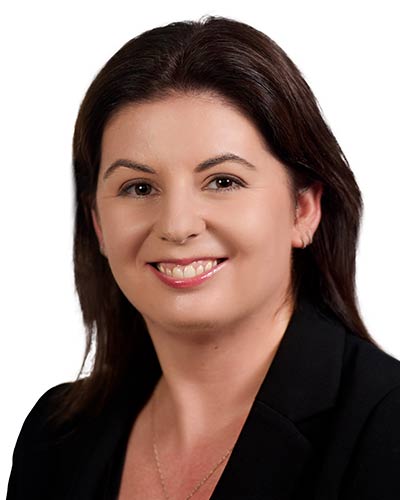Corporate flexibility and ease of navigation can explain the increasing popularity of the British Virgin Islands among Asian fund managers, virtual asset businesses and special purpose acquisition companies
Using Special Purpose Acquisition Companies (SPACs) as an alternative to traditional IPOs has been a key feature of financial markets since 2020. Despite a drop in activity levels in 2021 due to US Securities and Exchange Commission (SEC) concerns regarding forward-looking statements and accounting treatment of warrants, SPACs continue to be a key proposition for investors, venture capital firms and private equity funds looking to efficiently deploy capital and enhance their portfolios in an era of low interest rates and market volatility.

Counsel
Conyers in BVI
Tel: +1 284 852 1114
Email: rachael.pape@conyers.com
Offshore jurisdictions including the British Virgin Islands (BVI) have proven to be particularly well-suited and effective for incorporating SPAC vehicles, given their business-friendly, flexible and internationally recognised legal regimes. Although most SPAC activity to date has been focused in the US, Asia-based sponsors, investors and managers have begun to show an interest in SPAC IPOs, and de-SPAC opportunities are increasingly being explored in China and South Asia. To capitalise on this new market, it is anticipated that stock exchanges such as Hong Kong and Singapore will look to lift existing restrictions on raising funds for unspecified purposes.
Also known as “blank cheque” or “cash shell” companies, SPACs are newly formed companies that raise capital by way of an IPO for the purpose of using the proceeds to acquire or merge with one or more existing operating businesses.
Unlike traditional IPOs, the SPAC model is unique in that at the time of the IPO a SPAC will have no portfolio investments, substantive operations or investments earmarked for acquisition. Upon listing, the net capital proceeds of the IPO are generally placed in a third-party escrow or trust account, and the SPAC then has 12-36 months in which to source and consummate a transaction, failing which the venture must normally be wound up, with funds returned to investors.
For investors who buy units (a combination of shares and warrants) in a SPAC, the investment constitutes a bet on the ability of its experienced and often high-profile management team to quickly identify and consummate attractive investment opportunities – referred to as “business combinations” – post-IPO. It provides investors with access to the type of “buy-out” investment strategy typically restricted to private equity funds, while at the same time providing a degree of liquidity in that the shares of the SPAC are publicly traded.
For founders, a SPAC is attractive as it enables them to raise funds for a “general acquisition strategy”, while typically providing greater flexibility and potentially superior economics than pursuing the same strategy through a private equity fund.
Once the SPAC has raised funds through its IPO and an appropriate target business has been identified, a business combination is effected that normally results in the target business being acquired by, or merged into, the SPAC. Following this so-called “de-SPACing” process, a more conventional operating business structure exists and the surviving entity continues to operate as a publicly listed company under the rules of the relevant stock exchange.
SPAC BENEFITS
SPACs offer a variety of potential benefits over a

Associate
Conyers in BVI
Tel: +1 284 852 1160
Email: christopher.j.smith@conyers.com
traditional IPO, with speed to market being chief among them, particularly when markets are volatile and agility is of the essence. Investing in and listing a SPAC does not require diligence of an existing operating company on IPO, so is usually a faster way to raise capital on public equity markets.
In some cases, a company can go public in eight to 10 weeks, compared to 12 months or more for a traditional IPO, coupled with a defined timeframe within which the SPAC must complete an acquisition. Finally, due to its large cash reserves held in trust, a SPAC can move quickly to secure an acquisition target and de-SPAC relatively swiftly.
SPACs – particularly those backed by private equity – also have highly experienced management teams who are charged with sourcing targets within pre-determined investment parameters. This feature, together with various investor protections (e.g., the right for investors to pre-approve a proposed target and, during the pre-acquisition phase, the right to have their investment returned if they don’t like the direction it is taking) has dramatically increased popularity of the SPAC model.
BVI ADVANTAGES
Although SPACs pursuing US targets are typically incorporated in Delaware, more and more SPACs, particularly those pursuing Asian or European targets, are using offshore-incorporated companies to list.
The large degree of legal flexibility and political stability in the BVI – along with its tax neutrality and wide acceptance on global exchanges such as the NYSE, Nasdaq, HKEX, SGX, London Main Market and Alternative Investment Market (AIM) – provides an increasingly attractive option.
The listing process for a SPAC in the BVI is generally streamlined and BVI vehicles provide great flexibility to structure sponsor incentives in any manner investors demand. Specifically, BVI-incorporated SPAC vehicles provide:
- Progressive, flexible and business-friendly company law recognised by and familiar to sophisticated investors, lenders and securities regulators worldwide, including Hong Kong and other Asian jurisdictions;
- Rapid turnaround for incorporation;
- Unlimited purposes or objects and corporate capacity, which is important for SPACs with broad investment mandates;
- Ability to tailor constitutional documents to suit applicable listing rules and investor preferences;
- Ability to issue different types of shares and warrants as required for particular SPACs;
- Flexible capital maintenance rules permitting distributions and redemption or repurchase of shares from a wide range of sources (if the company meets applicable solvency criteria);
- Straightforward statutory merger regime that enables a SPAC to merge with its target as an alternative to a traditional share or asset purchase, which in the BVI only requires an ordinary (simple majority) resolution passed in accordance with a SPAC’s articles of association;
- Robust creditor protection including a straightforward and effective system for registration of security interests granted by a BVI company, facilitating the borrowing of additional funds and a sophisticated insolvency regime considered to be particularly friendly to secured creditors;
- Ability to redomicile to another jurisdiction (if required at a later stage);
- High degree of flexibility to tailor bespoke governance and capital arrangements (including equity warrant and redemption provisions, the efficient functioning of which are critical to SPAC structures);
- High degree of flexibility to tailor dual or multi-class investor voting rights, mitigating the risk of “no votes” blocking proposed business combination transactions;
- No mandatory concept of share capital or premium or capital maintenance (thereby avoiding the attendant cumbersome rules and restrictions regarding par value and share capital). Shares may be redeemed quickly and with minimal administrative hassle;
- No BVI takeover code or equivalent, or any specific statutory provisions that apply to listed BVI companies. This means a BVI company can elect to adapt and adhere to onshore codes and rules without risk of “double legislation”.
BVI companies listed on a US exchange may also be eligible to qualify as a “foreign private issuer”, thereby potentially benefiting from relaxed US regulatory requirements and certain concessions (as compared to US domestic issuers) regarding regulatory filings (quarterly financial reports not required), proxy solicitations (filings with SEC not required), audit committee requirements, and disclosure requirements regarding executive compensation and equity holdings of directors and officers.
FUTURE DEVELOPMENTS
Agility of structure is a key reason that SPACs have exploded in popularity, and the BVI is well placed to assist investors and companies at all stages of the SPAC life cycle. BVI SPACs have pioneered, and the authors anticipate will continue to be at the forefront of development of, novel SPAC features and structures.
Despite increased scrutiny, guidance and warnings relating to SPAC vehicles, prompting some commentators to suggest that increased regulation may follow in due course, our view is that SPACs will remain popular vehicles. Following recent changes to the UK listing rules aiming to make the UK a more attractive and flexible jurisdiction to list SPACs, the authors anticipate significant interest in SPACs in European and Asian markets in the coming years.

CONYERS
Commerce House, Wickhams Cay 1
Road Town, Tortola, VG1110
British Virgin Islands
Tel: +1 284 852 1010
Email: bvi@conyers.com



























